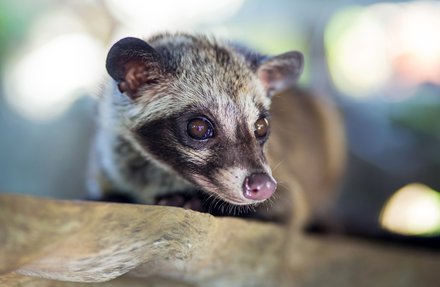Luwak coffee is harvested in a variety of countries in Southeast Asia, including Indonesia, Vietnam, and the Philippines. The production process is relatively simple. In the wild, civets eat coffee cherries as part of their natural diet. They select the ripest, sweetest cherries, but only digest the flesh of the fruit. The hard seed, or coffee bean, is passed through the civet's digestive system and excreted in its feces.
To produce Kopi luwak, coffee farmers collect the civet feces and wash the coffee beans thoroughly. The beans are then dried and roasted, just like any other coffee beans.
The Taste of Kopi Luwak
Kopi luwak is known for its smooth, mellow flavour. It is less bitter than other coffees, and it has a complex aroma that has been described as fruity, earthy, and chocolatey. The variety of coffee also plays important role for the overall taste. For instance, Luwak Robusta coffee is better than human harvested/processed Robusta, but the taste will still not so complex as Arabica.
The Controversy Surrounding Kopi Luwak
Kopi luwak is considered to be one of the most expensive coffees in the world, and it is often marketed as a luxury product. However, the production of kopi luwak has been criticised for its potential animal welfare concerns. While traditionally, the civet droppings are found and picked in the wild, intensive farming appeared with the success of the drink.
Some civets are kept in cages and force-fed coffee cherries, which can lead to health problems and stress.
Addressing the Controversy
Some kopi luwak producers are now working to address the animal welfare concerns surrounding the production of this coffee. For example, some producers are now using wild civets to collect the coffee cherries, and they are ensuring that the civets are not kept in cages or force-fed.
Consumers who are interested in buying kopi luwak should look for producers who are committed to ethical and sustainable production practices.
